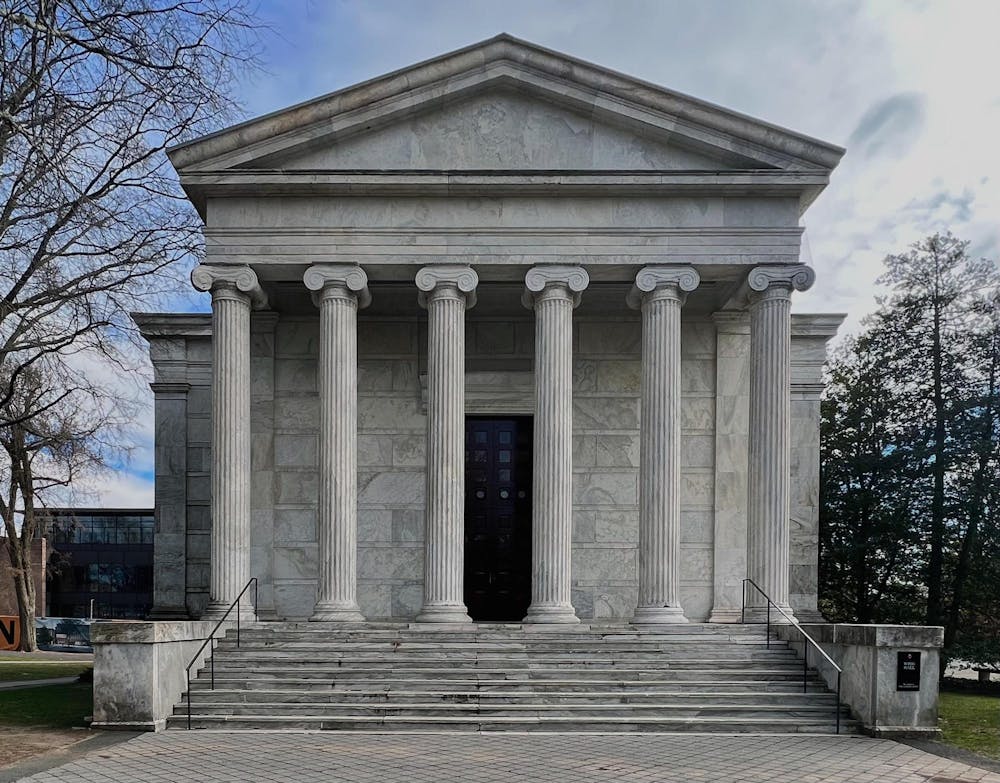Last week, the White House announced a pause on $175 million of federal research funding to universities, with an X post citing “policies forcing women to compete with men in sports” as the justification for the pause. Trump also signed an executive order which effectively bans transgender identity by forcing citizens to identify with their sex assigned at birth.
The materialization of anti-transgender executive orders and federal legislation lends new legitimacy to anti-transgender Republican politics, which seemed like more of a cultural rallying cry than a serious legislative issue. In conjunction with the Dobbs decision overturning the right to an abortion, as well as an increase in misogynistic rhetoric from the right, these policies illustrate a goal much greater than removing 10 athletes from the NCAA.
Attacks on transgender rights are not just an offensive against one community; rather, they are part of a larger movement to reverse the progress women have made over the past half-century. Conservative politicians want to give the government the power to decide what makes someone a woman. That should scare you.
Giving the federal government the power to decide who is a woman is giving them the power to create a lower rank of second class female citizens. Whether they do this legislatively, culturally, or both, it is a danger not only to transgender women, but to all of us — especially at Princeton, which is full of diverse, ambitious, and career-oriented women.
Vice President J.D. Vance has amplified traditionalist rhetoric about the role of women. He has publicly expressed that it is a woman’s responsibility to her children to remain in an abusive marriage, and that people without children should “face consequences” by having less of a say in our democracy. This rhetoric works in tandem with Dobbs to suggest that the Republican Party thinks American women have a responsibility to rear children, and that deviating from that responsibility is disgraceful and punishable. This is an attempt to define what a woman should be: a childrearing, tied-down caretaker.
Secretary of Defense Pete Hegseth ’03 has perpetuated similar ideas, publicly criticizing the role of women in the military and explicitly saying that, due to their gender, women are inherently unfit to serve our country: “Dads push us to take risks. Moms put the training wheels on our bikes. We need moms. But not in the military, especially in combat units.”
Hegseth has since attempted to walk back these comments following his nomination and confirmation to be Secretary of Defense, but the ideas seem to have taken hold within the Trump administration: A firing spree after the inauguration has removed most high-ranking female officers from their post. Hegseth’s comments and the purging of top-ranking female officers are further attempts to define women according to narrow, antiquated gender roles. According to him, women are weak, incapable, and incompetent.
The Princeton community is full of women who defy these reductive and oppressive definitions. Our alumni are Supreme Court justices, First Ladies, and powerful business leaders. The conservative quest to box us in, limit our futures, and dampen our ambitions is a threat that we must take seriously, and it cannot be separated from attacks on transgender women.
The rhetoric and policy proposals attacking transgender women affect us similarly. They explicitly seek to define womanhood, and their widespread acceptance gives legitimacy and legislative force to the practice of telling women who they are and what they can do.
Policies meant to legislate and harass transgender women have an impact on all women, just like rhetoric meant to limit them. We have seen anti-transgender rhetoric used to disparage and disqualify female athletes of color who have never undergone any social or physical sex changes. Widespread implementation of policies like South Carolina representative Nancy Mace’s “bathroom bill” would subject women and girls who are deemed suspect — often women and girls who don’t conform to traditional notions of femininity — to inspection, scrutiny, and even violation.
Together, these policies work to create a second class of female citizens out of those who do not fit whatever definition of a “woman” those in power prefer, transgender or not.
And there are already groups of women in this country who, without government mandate, are treated as second-class female citizens. Black women experience maternal mortality at a rate more than two and a half times that of their white counterparts. Hispanic women face a gender pay gap nearly 20 percent wider than that faced by white women. Black and Hispanic women endure domestic violence at higher rates. Indigenous women and girls go missing at a rate 10 times higher than the national average. Disabled women are three times more likely to experience rape or sexual assault than their able-bodied counterparts.

Giving the federal government the power to dictate, define, and mold womanhood would exacerbate and systematize these existing inequities. Marginalized women know the pain of existing in this realm of womanhood, one that deems you less than other women. The institutionalization of this practice of deeming certain women less worthy than others is most immediately perilous for transgender women, but it is eminently dangerous for all of us.
What should worry us the most, as women who are also students, is that the Trump administration is starting here. Through federal funding and legislation by the NCAA, the administration has shown that it is willing to use education as a battlefield to fight its culture war. Policies and politicians that attack the transgender community and target transgender women should scare us all. The oppression and rights of all women are interconnected. Transgender athletes are the first ones they have come for, but if we do not fight back, they will not be the last.
Ava Johnson is a sophomore columnist and Politics major from Washington, D.C. Her column “The New Nassau” runs every three weeks on Thursdays. You can read all of her columns here. She can be reached by email at aj9432[at]princeton.edu.








